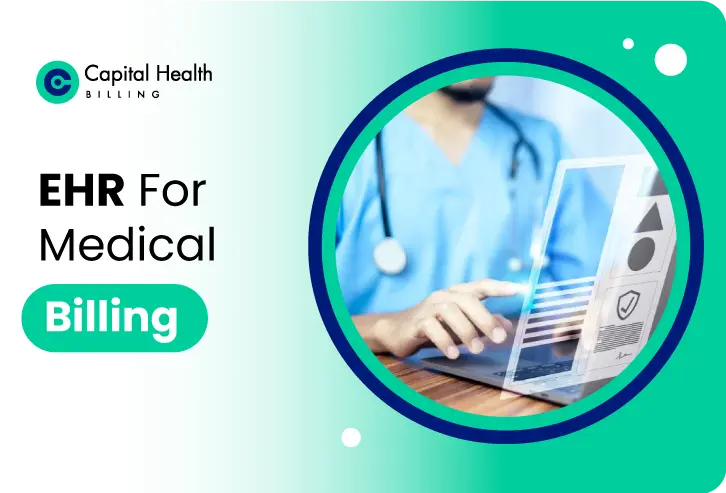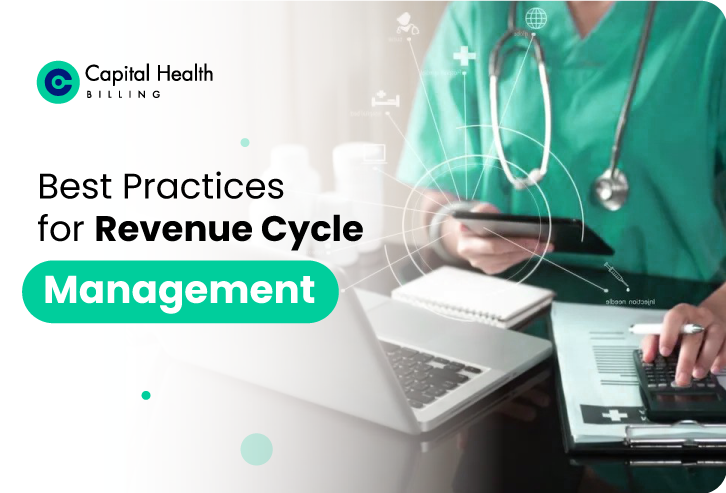
Friday March 29, 2024
The steps involved in medical coding and billing for medical services are wide, and each step has its own specifications. One of the initial steps in medical billing and coding is gathering patient information for registration purposes. The patient details include the patient's name along with other confidential data, like medical history and insurance plans.
With this access to patients' confidential data, healthcare services need to look for ways to safeguard this confidential data. This is where HIPAA compliance becomes an integral and pivotal part of medical billing and coding. HIPAA has set an array of standards to safeguard patient data while the medical billing processes are being conducted. HIPAA has a lot to contribute and say in the medical billing process. The medical billing company will be responsible for staying compliant with these standards when billing to avoid data breaches and the consequences of not staying compliant.
In this blog, we will deeply discuss the benefits of HIPAA compliance in medical billing and the consequences they bring if you do not follow the right ways to stay compliant.
HIPAA is one of the legislation acts implemented in the United States to secure the confidential data of patients provided to medical professionals. This act states that all the parties involved in the medical billing process need to follow the guidelines to safeguard patient data. This compliance is not only beneficial for the patients but also offers some negligible benefits for healthcare services.
Following are some tangible benefits of staying compliant with HIPAA regulations.
One of the most prominent benefits HIPAA compliance brings is the patient's privacy. HIPAA explains the rules and regulations for the disclosure of the patient’s confidential data to any third-party, without sharing of information unnecessarily.
Moreover, HIPAA focuses on the electronic transmission of the claims safely, because these could result in privacy breaches. Safe transmission of electronic claims reduces the risks of information theft and sharing.
Patient trust is one of the most significant factors for any medical professional or healthcare service. Patients' trust levels play a pivotal part in your practice's revenue generation. Higher patient trust means higher appointment rates, which increases revenues.
When patients learn that the service provider complies with HIPAA rules and regulations, they will be more confident and open to sharing their information. Patient trust defines the type and amount of information shared with medical coding and billing services. .
Nothing can be more painful than your patient's confidential data getting in the hands of unauthorized third parties. This is why the compliance of the medical billing companies with HIPAA regulations is made mandatory. The access of unauthorized people to patient data like their medical history, account details, and other similar data could be damaging.
Moreover, this compliance achieves not only data security but also data accuracy. Unauthorized people are not allowed to access confidential data, ensuring data integrity and accuracy.
Noncompliance with HIPAA regulations comes with consequences, and the service providers and professionals may face penalties. Based on the type of violation, it could result in civil and criminal penalties. One may have to pay a hefty amount for these penalties.
This is why compliance with the regulations is mandatory to avoid the penalties. Only the expert medical billing services that know the significance of your practice’s revenue cycle management will will stay compliant and avoid the penalties.
Another benefit that medical professionals and healthcare service providers can enjoy by staying compliant with HIPAA regulations is minimizing expenses. It is very well understood that noncompliance with these regulations results in penalties, and that, too, a huge amount.
You stay compliant and these penalties are avoided in the first place. Moreover, there could be a possibility that the patient may sue you for breaching their data and privacy. Staying compliant won't hurt you, nor the patients that are putting their trust in you.
The need to gather patient information arises because medical professionals need to bill for the services they offer. But these medical billing processes are halted because of the issues that occur due to non-compliance with HIPAA regulations. To make sure your medical billing process is being conducted on time, you must stay compliant.
Moreover, the medical billing company will no longer have to deal with the complexities and penalties of data breaches due to non-compliance. This way the professionals get all their focus back on claim processing, optimizing healthcare revenue.
Whether you bill for your services in-house or outsource a medical billing service, compliance with the HIPAA regulations is mandatory. But the real question is how to stay compliant and what dos and don'ts you need to follow to avoid penalties and consequences.
Following are some effective ways you can maximize your compliance with HIPAA standards and avoid penalties.
Hiring experts from expert hospital billing services is one of the effective and ideal ways to stay compliant. These hired experts know the regulations and the standards very well. With expert medical billing services, you will no longer have to worry about facing data breaches and data confidentiality issues. The only thing you will get back is maximum reimbursements with higher patient satisfaction.
One of the significant reasons behind non-compliance with HIPAA regulations is the need for more awareness of the medical billing team. It is pivotal for improved patient data privacy that the medical billing team is aware of the updated regulations and standards. For that, medical billing companies need to train their staff so that they are aware of the regulations, their benefits, and the consequences they bring. You must keep in mind that only expert and professional medical billing companies will consider staff training and development.
Electronic health records systems, or EHR, have become very common and are pivotal for quick and accurate medical billing. However, the technical assessment and reporting of these systems is very important. Any troubles or issues in the system could also result in data breaches and privacy issues. The medical billing team must be trained enough and familiar to identify these issues and report them to avoid HIPAA non-compliance penalties.
One of the reasons why your patient data is not safe is because of the way you opt to store the confidential data. Professionals and expert medical billing services use modern and top-tier technology to store the confidential data. Moreover, this technical support also allows these professionals to process the data and share it with the authorized people securely. With pre-defined access authorities and encryption of the data shared, there is no way the patient’s confidential data will be leaked, penalizing you with HIPAA non-compliance.
Despite taking all the measures and data security steps, if there is any risk to the confidentiality of the data, it needs to be notified. The notifications are to be sent to the Department of Health and Human Services (HHS). Within 60 days of identification of the data breach, it is obligatory for the healthcare services or the responsible medical billing services to report to the responsible people. It is one of the HIPAA rules that must be followed, in addition to ensuring the privacy and security of the data. If you fail to notify of any data breach, you are no longer compliant with HIPAA regulations.
If you want your medical billing processes to be smooth and get the reimbursements on time, then you need to consider a reliable medical billing partner. Choosing the best medical billing services will save you from the consequences of staying non-compliant with HIPAA standards. It will provide you with the best medical billing services, increasing your practice’s revenues.
Related Posts



Get a Quote